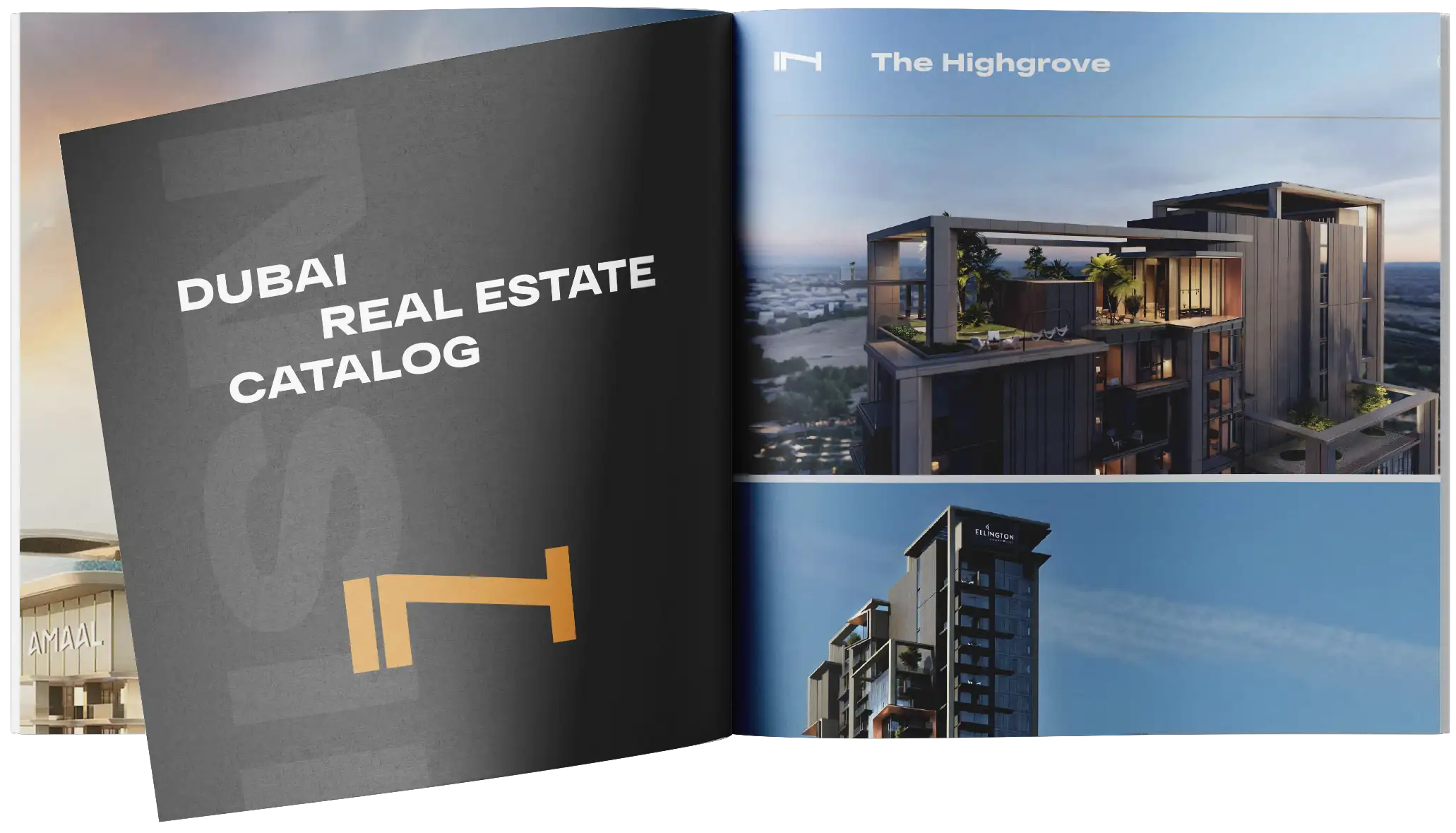

Trump and UAE Real Estate: How The Imposition of United States Duties Will Affect Dubai
Inside Realty Expert
The author of article & Inside Realty expert

On 2 April 2025, Donald Trump announced the imposition of the largest US trade duties in the last hundred years — the measures affected 211 countries. Markets reacted instantly: billionaires lost $208bn in one day, Apple shares fell 18.8%. While Trump has suspended the imposition of duties for 90 days. Investors began to look more actively towards neutral countries — such as the UAE. We explain why this is the case and how the US trade policy may affect Dubai.
What's Going On?
Donald Trump introduced a ‘universal basic tariff’ — 10% on all imports to the USA. And already from 9 April, ‘mirror’ tariffs came into force — they concern countries that, in Washington's opinion, apply unfair measures to protect their own market. The minimum rate for Chinese goods is 34%, for the EU — 20%. And for Vietnam — 46%.
The Arabian Gulf countries did not fall into the category of ‘worst offenders’ and avoided high duties. In 2024, the US had a trade surplus with the UAE: $27bn of exports against $7.5bn of imports. This played to the Emirates' advantage — they retained access to the US market and did not lose their appeal to international investors. But the UAE still made the list of countries with a base rate of 10 per cent.
On 9 April, Trump postponed the imposition of duties for 90 days. This is only a pause for now, and no one can say for sure what will happen next.
Amid the trade storm, economic organisations are already sounding the alarm. WTO chief Ngozi Okonjo-Iweala warned that the new duties could reduce global trade volumes by 1 per cent as early as 2025.
Trump is effectively declaring war on global trade, putting the focus back on domestic production. This means breaking up familiar supply chains, moving away from liberal markets and weakening the role of international organisations (such as the WTO — World Trade Organisation).
Investors, corporations and private capital will start looking for new neutral, stable and profitable countries — such as the UAE.

Get A Catalog of The Best UAE Properties in Your WhatsApp 
Get The Best UAE Properties
of February in WhatsApp 
Why The UAE Wins The Most
Geography and Neutrality
The UAE now acts as a neutral place to do business and preserve capital. The Emirates are not involved in geopolitical conflicts, are not involved in sanctions wars and therefore become a ‘safe haven’ for everyone from European companies to Asian investment funds.
Inflow of Capital and New Players
Against the background of instability in other regions, the UAE is becoming a magnet for private capital: family offices, startups, hedge funds, IT companies. For example, in 2024, the world's largest asset management company, BlackRock, with a capital of $11.5 trillion, will start operating in Abu Dhabi.
It takes only 1-2 weeks to open a business here. And to obtain residency it is enough to invest from $545,000 in property and apply for a Golden Visa. This gives the investor 10 years of residence in the country without the need to stay permanently in the Emirates.
For many entrepreneurs and wealthy private investors, the Arab Emirates is a great alternative to Europe and the United States. With a high standard of living, without an overheated market and high taxes.
Strong Economic Base
The IMF forecasts that the UAE economy will grow by 5.1 % in 2025. This is one of the best rates among Middle Eastern countries. (By comparison, Saudi Arabia's is 3.3 %).
Let's confirm the country's financial stability with figures. The UAE's public debt is 112.4 billion dirhams — only 22% of GDP.
Also, business conditions here are comfortable: profit tax is 9% and personal income tax is 0%. The Emirates are winning strongly against the background of Europe and Asia.
In the first three quarters of 2024, the Dubai Chamber of Commerce registered more than 51,000 new companies. One of the reasons why business is booming is that the country has free economic zones. These are territories with special conditions for doing business: simplified registration, no taxes, and the possibility of 100% foreign ownership. There are more than 40 such zones in the UAE, and 28 of them are in Dubai. The most popular are Dubai South, Dubai Multi Commodities Centre (DMCC), Dubai International Financial Centre (DIFC).
The banking sector is not lagging behind: Emirates NBD in 2025 became the first state-owned bank to launch cryptocurrency trading.
According to Arabian Business, the combined fortunes of the world's 500 richest people fell by $208bn in just one day after the duties were announced, with the Middle East being the only region where capital growth was recorded. While other regions are becoming less attractive for investment, the Emirates are winning.
We have already seen cases where, when one country imposed high tariffs, others benefited by offering competitive pricing. The same trend could play out now, with Dubai and other key markets gaining from this shift.
Anis Sajan from Danube Group
What Awaits The UAE
New duties could hit the export model of dozens of countries. But the UAE is a country with minimal dependence on US supplies.
According to analysts at Century Financial, the duties will not affect the UAE much, Arabian Business reports.
This means that the property market in the Emirates will continue to develop. We explain why:
Angad Bedi, CEO of construction company BCD Group, said Trump's tariffs could lead to temporary volatility in commodity prices. But the UAE's strategic advantages mitigate long-term risks.
Global players will pivot toward the UAE — and Middle Eastern markets – for growth as the greater diversification moves in the region could lower construction costs and boost competitiveness in the UAE’s residential, commercial, and industrial sectors.
Angad Bedi from BCD Group
The UAE property market is set to grow, especially the premium. Knight Frank, an international consulting company, predicts that the premium property market in Dubai will grow by 5% in 2025. This is the highest among all the countries for which the forecast was made. Here's what the rest of the cities are expecting:
New York
3%
Geneva
3%
Paris
2,5%
London
2%
Syndey
1%
Tourist traffic will increase. In Abu Dhabi they are finishing the construction of a cluster of five museums, in Ras Al Khaimah in 2 years will open the first casino in the Middle East, and in Dubai they are developing new artificial islands Dubai Islands and Palm Jebel Ali. All this will attract even more tourists to the country.
Rental rates will rise. Rental values are predicted to increase by 10-12 per cent on average across Dubai in 2025. Especially in neighbourhoods such as JVC, Business Bay, Dubai Hills.
What's The Outcome
New US trade policies have already destabilised markets. But there are opportunities in this change. The UAE is a country with a strong economy, massive infrastructure investment and a soft tax environment. This makes it a hotspot for capital, suppliers and international business.
Property in Dubai will continue to rise in value and you can capitalise on it. If you're thinking of relocating or investing, now is a great time.
We can tell you which neighbourhoods are more profitable to buy in, how to start a business or get a Golden Visa. Just talk with expert.

Inside Realty Expert
The author of article & Inside Realty Expert
Read More Articles by Inside Experts 
More Articles by Inside Experts 
More Articles
by Inside Experts 

Hi, I'm Victoria
Hi, I'm Victoria
UAE Investment Expert at Inside Realty
I Will Call Back If You Have Questions About Real Estate Investments in The UAE 


Are You Interested?
Planning on Buying a Home?
Our team of experts will help
you make the right choice
Our team of experts will help you make the right choice




 UAE GOLDEN VISA
UAE GOLDEN VISA
 Al Reem Island
Al Reem Island






























